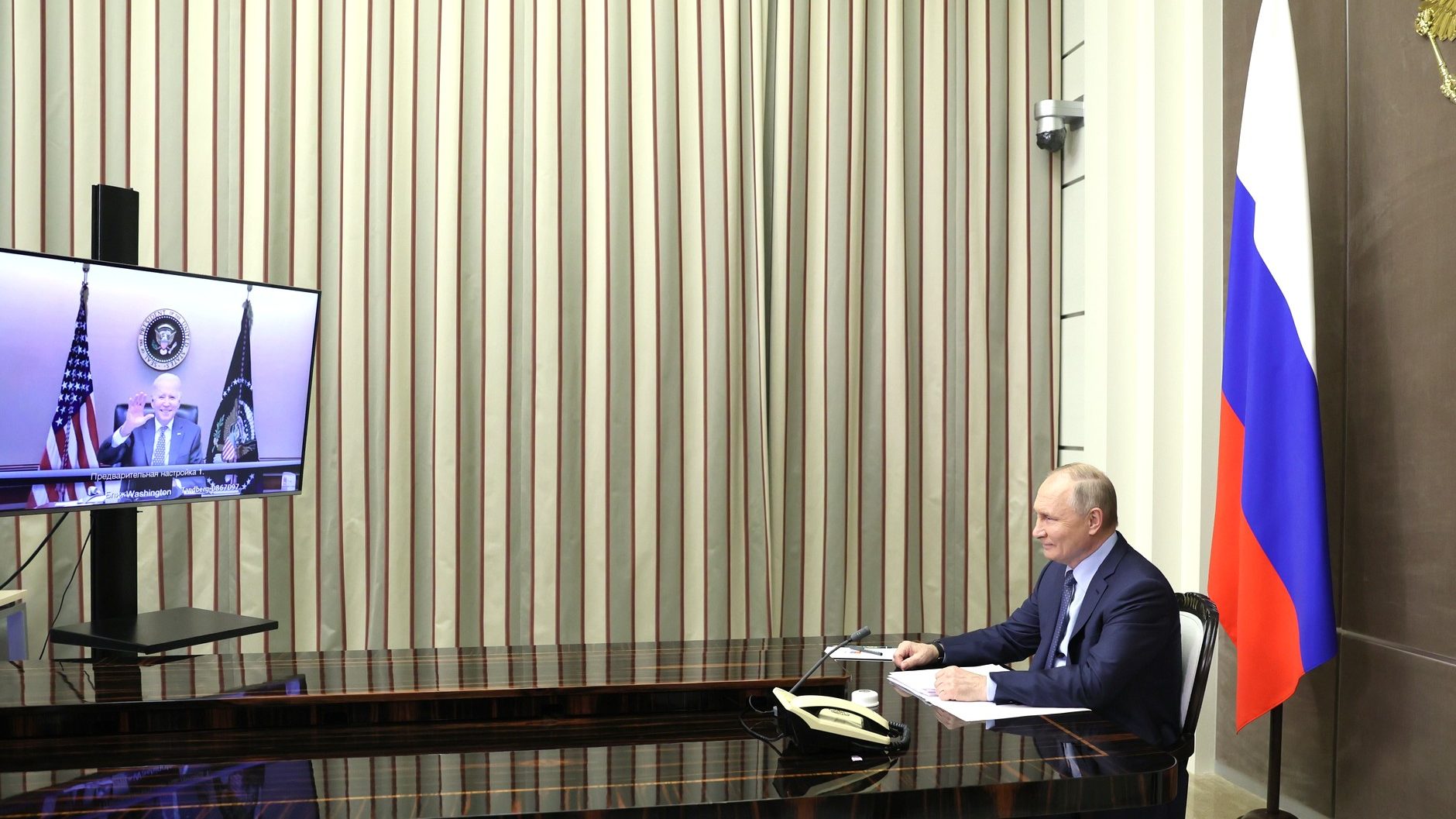Putin and the Post-Ukraine Era
Al-Arab, London, February 17
The Ukraine crisis exposed the true face of the Biden administration. This is an administration that found itself in confrontation with China and has surrendered to the Islamic Republic of Iran. It therefore isn’t surprising that Russian President Vladimir Putin decided to move ahead with his plans to invade Ukraine, after discovering that he’s dealing with an American administration that is nothing more than an extension of the Obama White House. The Biden administration can yell and threaten all it wants. At the end of the day, it can’t force Russia to back down on Ukraine. What kind of trade sanctions can Washington possibly impose on Russia that Putin cannot replace with his Chinese ties? Moreover, European talk about sanctions against Russia is of the kind that makes no sense in light of the European Union’s desperate need for Russian gas. The weak response of the Biden administration is the product of decades of American neglect that date back to the time when President Jimmy Carter failed to respond to the Iranian takeover of the US embassy in Tehran. The embassy’s staff remained hostages for 444 days and were released only after the US presidential elections, when it was confirmed that Carter was displaced by Ronald Reagan. Reagan’s campaign manager, William Casey, had made a secret deal with the Islamic Republic not to release the hostages before Election Day. Carter’s inaction was enough to start a series of American concessions that continue to this day, with only a few exceptions. Among the exceptions are the expulsion of Iraq from Kuwait during the presidency of George H.W. Bush in 1991 and the assassination of Qasem Soleimani, the commander of the Quds Force, by the Trump administration in January 2020. In the remainder of cases, successive US administrations have only taken steps that strengthened Iran, especially after the invasion of Iraq in 2003. Before and after the collapse of the Soviet Union, Putin served as a KGB officer in East Germany. He was there when the Berlin Wall came down. There is no doubt that Putin had this ability to link events up to the Obama era and the turning points that the world witnessed during the eight years he spent in the White House. He managed to manipulate the US president in the summer of 2013 when Bashar Assad used chemical weapons in his war against his people. Putin persuaded Obama, who was interested in placating Iran after entering secret negotiations with the mullahs, to turn a blind eye to Assad’s human rights violations. This was the turning point that paved the way for the direct Russian intervention in Syria, which saved the Assad regime. Everywhere in this world, America has revealed its impotence. Even with Venezuela, where the regime has committed all possible crimes against its own people. Perhaps the most important thing Putin has noticed is that US allies do not trust America. For example, the Russian president must have paid close attention to the United States’ stance toward what is happening in Yemen and the Iranian aggression toward Gulf states. There is an American insistence in the Vienna talks to completely decouple Iran’s behavior outside its borders, including its missile attacks on Abu Dhabi, from the nuclear file. Between a bewildered America and a fractured Europe, Vladimir Putin developed a new hobby of tapping into the weaknesses of his opponents. He is building a new international order in cooperation with China, which breached all of the agreements it signed before the British withdrawal from Hong Kong (China’s appetite toward Taiwan is still a major concern). The world is changing. It is unfortunate that it is changing for the worse due to a confused US administration that many people, especially the countries of the region, have no idea how to deal with. Certainly, what raises the concerns of the countries of the region, including Turkey, is that of surrendering to Iran. There is no doubt that Putin is a shrewd man who has manipulated Obama and is currently playing Biden. He will score points on the Americans, even though the game he is playing is very risky. And yet, this doesn’t preclude asking questions about what could happen in the long run. These questions relate to the goal that Putin intends to achieve in the post-Ukraine era. Is he satisfied with neutralizing Ukraine and preventing its accession to NATO or does he want to go further than that in Europe? There is a point at which Putin is supposed to stop. That point is related to the economy. What led to the collapse of the Soviet Union was the economy above anything else. The economy is more important than missiles, nuclear bombs and mighty armies. The real question is the following: Does Putin realize that immediate victories are one thing, but preserving them in the long term is another? – Khairallah Khairallah (translated by Asaf Zilberfarb)

